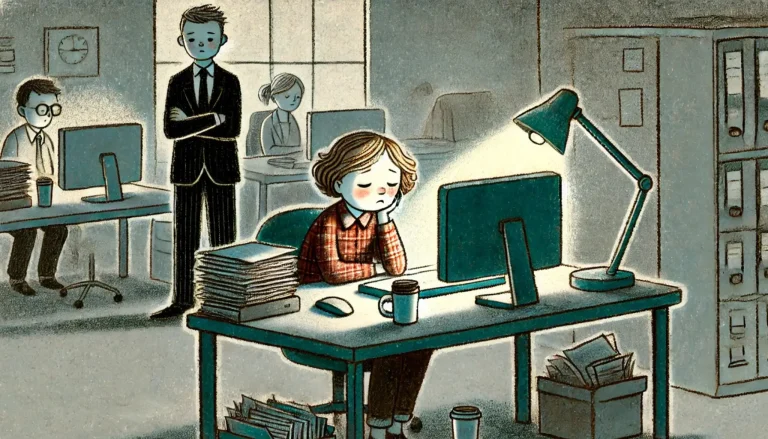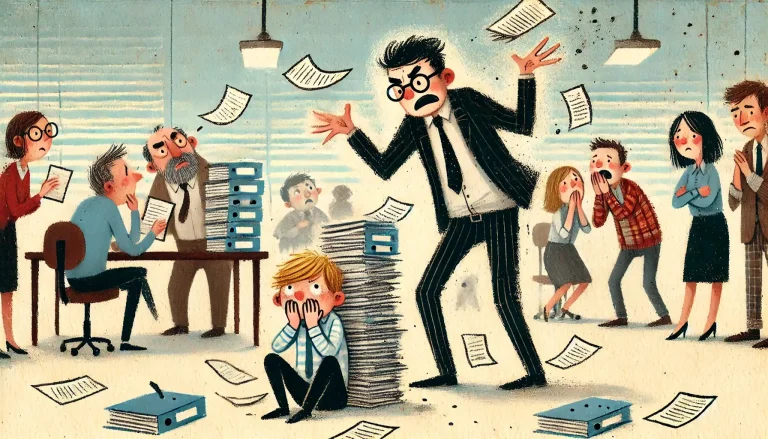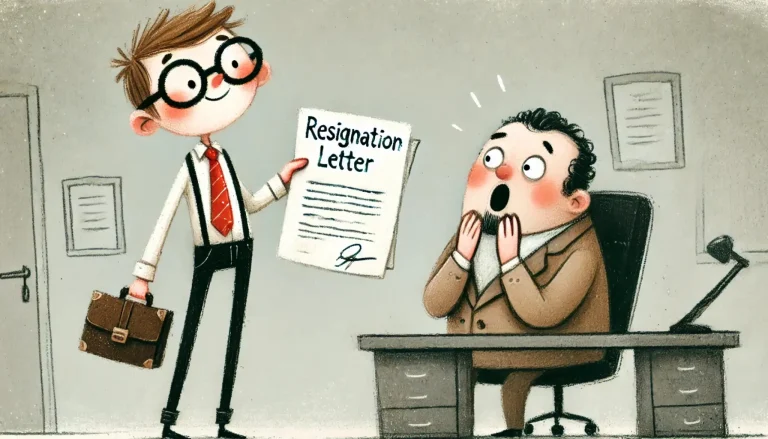Dear Boss, I’m Depressed, Not Lazy—There’s a Big Difference (An Open Letter)

Let’s cut the crap: depression at work isn’t laziness.
And if you can’t tell the difference, you’re part of the problem.
This isn’t about people slacking off—it’s about people drowning while you’re asking them to “just swim harder.”
Depression at Work Is Real, Even If You Ignore It
What Depression At Work Actually Looks Like
It’s not your employee kicking back with their feet up.
It’s them staring at their screen for hours, unable to start a task because their brain feels like a Windows 98 error.
It’s missing deadlines not because they don’t care, but because they’re too overwhelmed to even begin.
Signs You’re Overlooking Because It’s Easier to Judge:
- They’re showing up late, or not at all, because mornings feel impossible.
- Their once-impeccable reports are now riddled with mistakes because focusing feels like running a marathon blindfolded.
- They’re avoiding meetings like the plague because smiling and nodding through the day feels like a performance worthy of an Oscar.
Depression ≠ Laziness (Stop Confusing the Two)
Here’s the truth: laziness is a choice.
Depression is a mental health condition.
Lazy people don’t care about getting things done.
Depressed people care so much it’s crushing them.
They’re just too mentally drained to function, but hey, sure, let’s call that “slacking.”
Why This Misconception Exists:
- It’s easier to label someone “lazy” than to ask, “Are you okay?”
- Corporate culture loves “productivity robots,” and anyone falling short gets thrown under the bus.
- Because many leaders lack of mental health training, which leads to misconceptions.
Your Mismanagement Makes It Worse
You think ignoring depression at work is saving your bottom line?
Think again.
Here’s What Actually Happens:
- Productivity Tanks: Spoiler—your team doesn’t magically perform better when they’re mentally crushed.
- High Turnover: Good luck replacing talent when you burn them out faster than your coffee machine.
- Toxic Culture: Nothing screams “great workplace” like everyone pretending they’re fine while sobbing in the bathroom.

Here’s How to Stop Depression At Work
Want to actually lead instead of being part of the problem? Try these:
Stop Being Afraid of the Conversation
Avoiding mental health conversations doesn’t make them go away.
- Start with: “Hey, I’ve noticed you seem off—do you need support?”
- Avoid: “Why can’t you just get it together?” (Congratulations, you just made it worse.)
Learn the Art of Flexible Support
Depression isn’t a one-size-fits-all struggle.
- Offer flexible schedules or remote options.
- Remove unnecessary tasks that are draining their already-limited energy.
Let us help you support your team the right way.
Push Professional Help, Not Pep Talks
Your “motivational speeches” aren’t helping.
- Provide access to counselors or Employee Assistance Programs.
- Normalize therapy like it’s a gym membership—because mental health is just as important as physical health.
Employees, Here’s How to Advocate for Yourself
Boss still clueless about your depression at work?
Time for you to to take control.
Use Brutally Honest Language
- “I’m struggling with depression. It’s impacting my work, and I need support.”
- “Here’s what would help: fewer last-minute tasks, clear priorities, and some flexibility.”
Find Allies Who Get It
- HR isn’t always your enemy—some teams actually help.
- Trusted coworkers can also be sounding boards when you need to vent or strategize.
When Your Boss Won’t Change, Change Your Job
Let’s not sugarcoat it: if your workplace refuses to acknowledge mental health, you’re in the wrong place.
Steps to Peace Out Gracefully:
- Polish your LinkedIn.
- Start networking like your life depends on it (because it does).
- Walk out with your head high and never look back.

Final Thoughts for Every Boss Reading This
If you’re still blaming your team’s struggles on “laziness,” take a good look in the mirror.
Depression is real, and your response to it can either destroy someone’s career—or save it.
Want a thriving workplace?
The time to change is now.
Take one step today—educate yourself, have that conversation, or offer support.
Your leadership can make or break your team’s future.
WhatsApp us